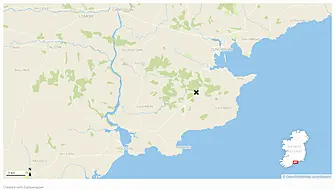Revenue was incorrect in determining that the release of the balance of a €6 million property loan taken out by a development company should be treated as a receipt of the trade, the High Court has found.
Mr Justice Oisín Quinn said Revenue and a Tax Appeal Commissioner were incorrect in finding that the writing down of the value of the property by Arlum Ltd, and the carrying forward losses as a result, did not equate to having a deduction allowed for a debt.
The judge said Arlum got a €9.5 million loan from a bank in December 2006 to buy 23 acres near Tuam in Galway.
It was planned to build a residential development on the site but this never happened, due in a large part to the financial crisis of 2007/8.
The loan was secured, among other things, on the 23 acre site itself and over another nearby property at Palace Fields which Arlum was in the process of finishing out as a residential development.
Income from the Palace Fields development was used to pay down €5 million to the bank in interest and capital. From 2010, the company had been, each year, writing down the value of the lands in its accounts on the basis of the dramatic deterioration in property values taking place at that time and in accordance with accepted accountancy practice.
In 2016, following a failed attempt to sell the lands at auction, the bank agreed, in return for a final payment of €250,0000, to release Arlum from its security and waive the balance due on the loan. The amount released was just over €6 million.
In October 2016, the company's trade losses carried forward, as a result of the writing down of the value of the lands, stood at €7.1 million.
The company sought to treat the release of the balance of the debt as a contribution to the balance sheet in the nature of a credit sum below the gross profit line on the basis of, among other things, that the amount of the write-off did not represent a trading profit.
Following substantial correspondence between the Revenue and the company’s tax advisors between 2018 and 2021, Revenue ultimately determined in May 2021 that this debt write off should be treated as taxable income, which, if correct, would have the effect of reducing the losses being carried forward to some €1.1 million, the judge said.
Arlum submitted an appeal and in May 2023, the Tax Appeal Commissioner also determined that writing down the value of the lands in these circumstances amounted to a deduction "allowed for any debt” where writing down the value of the lands led to an allowable financial loss that is being carried forward for tax purposes.
The company sought an appeal to the High Court by way of a case stated to determine specific questions. Revenue opposed the appeal.
In his decision, Mr Justice Quinn said he was satisfied that the interpretation of section 87(1) of the Taxes Consolidation Act 1997 by the Commissioner was incorrect and an error of law.
The writing down of the value of the lands, and carrying forward losses as a result, did not equate to having a deduction allowed for a debt, he said.
The Revenue and the Commissioner had erred in law in determining that the release of the balance of the loan for just over €6m should be treated as a receipt of the trade, he said.







